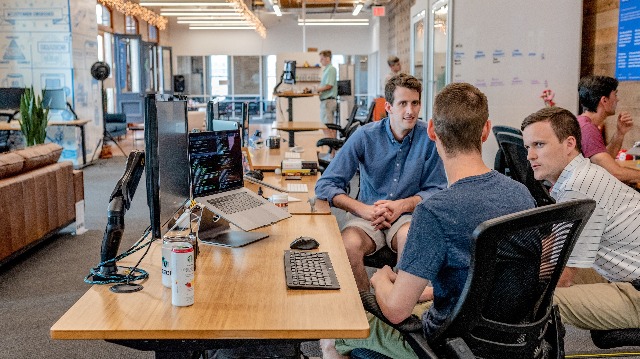A Successful Digital Transformation Needs a Talent Transformation to Beat the Odds
Is your Digital Transformation program reaching your desired goals?
Is your workforce inspired to change, motivated to learn, and sufficiently skilled to participate in initiatives to create a true digital enterprise?
Is your workforce looking at digital initiatives as cross-company, organization-wide initiatives rather than just technology initiatives stemming from the IT department?
If your answer to any of the above questions is NO, you are not alone. More than 70% of organizations attempting Digital Transformations fail to realize the benefits of their initiatives, according to Harvard Business Review.
Holistic capability is the Mantra
To beat the odds and succeed when undertaking digital transformation a holistic approach is key. Holistic digital transformation requires looking at every existing aspect of a digital business and rethinking each component. Understanding the business challenges and problems is crucial as is looking at every aspect through a customer lens and foundationally focusing on the customer through each touchpoint on their customer journey.
Some of the components of a holistic digitized business model include: digital enterprise strategy, leadership that is forward looking, an inclusive agile culture, redefined processes, implementation of new technologies, ground up innovation, a flattened business model, underlying technology, digitally prepared talent, and more.
Digital transformations that look at only one or a few components really miss the mark. We all know that digital transformation is not only about technology. Companies must focus on each of the key components.
One important and often missed or under examined area is the people. If organizations don’t digitally transform their talent base, then the digital transformation initiatives, like a house of cards, can come crumbling down. Across the board, a large contributor to failure in digital transformation is a workforce that’s not on board with the initiative.
Common reasons for lack of employee participation are:
- Resistance to change
- Fear of the unknown as well as fear of failure
- Inseciruty about job loss
- Inadequate training and skill sets
Many organizations train employees on new digital tools in a rush, teaching the limited amount the deem necessary to implement the new tools. In the process, they may miss the focus on infusing the knowledge of the big picture, such as changing market dynamics, the need for transformational initiatives, and the role that individual employees can play in creating the digital future. A big picture view with clarity on the need to change at the individual level will make the employees willing participants in the transformation process without fear and resistance.
Organizational Talent Transformation – a Critical Enabler
Digital is blurring the lines between functional and technical roles in the organization. The digital workforce needs an integrated combination of business knowledge, technology skills, and above all a mindset to think and act digitally. A deep learning of organizational, functional, and role-specific skills should reinforce such knowledge. It is important to make the existing workforce unlearn their old habits and instead learn how to leverage new technologies and processes, becoming continuous learners.
New Ways of Learning
Organizational talent transformation processes need to significantly change from the traditional training methods to experiential and immersive learning making problem solving a creative process. Asthey gain deeper understanding, employees get comfortable in experimenting on digital innovations and evolve new business models leveraging digital capabilities. By working in this new way individuals are taken to new digital levels and organizations are propelled into the digital future. By employing this holistic approach to digital transformation, organizations are set up to beat the odds and succeed in their digital transformation initiatives.




